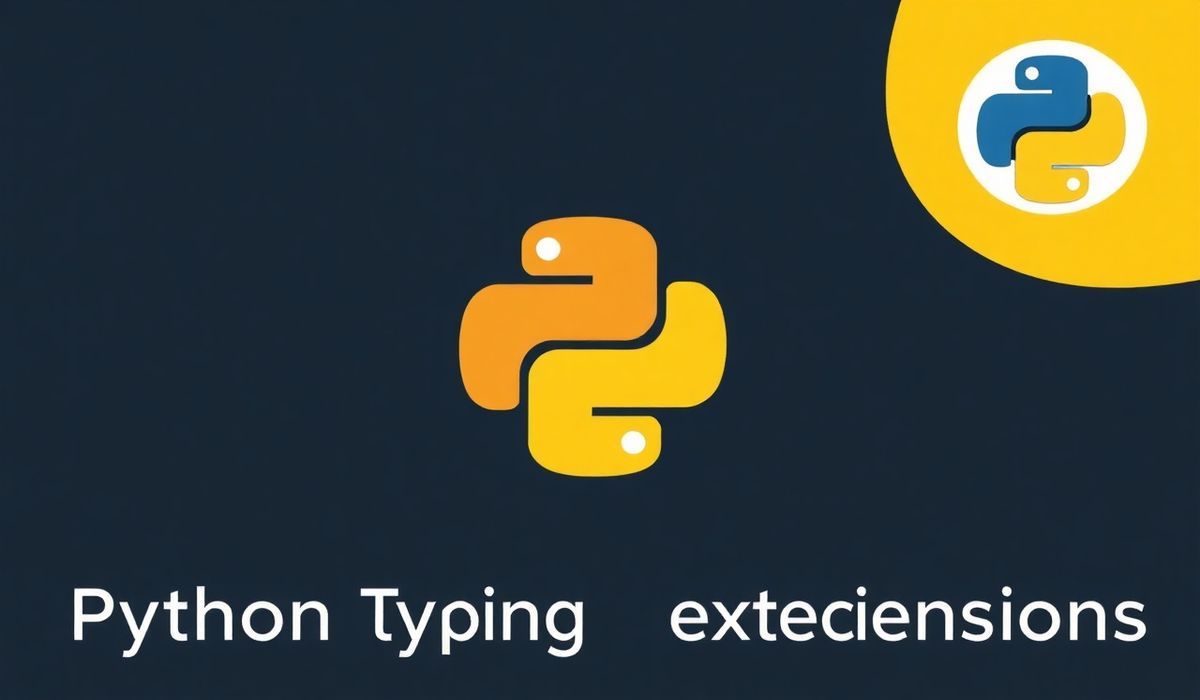Introduction to typing-extensions
typing-extensions is a powerful Python library that extends the capabilities of the standard typing module. It acts as a bridge to provide features from future Python versions to older versions, ensuring you can utilize modern typing features even if you’re working with an older interpreter. This library is essential for Python developers who aim to write robust, maintainable, and highly-typed code. Let’s dive deep into this toolkit with plenty of examples and usage scenarios.
Why Use typing-extensions?
Python’s typing module has transformed how developers write type-safe code. However, not all versions of Python support the latest type features. typing-extensions acts as a backport, bringing modern typing constructs to earlier Python versions. Some of the most useful APIs include Literal, TypedDict, Final, Protocol, and more.
Key APIs from typing-extensions
1. Literal
The Literal type allows you to specify that a variable or function argument must be one of a specific set of values.
from typing_extensions import Literal
def get_status_code(status: Literal["success", "error"]) -> int:
if status == "success":
return 200
elif status == "error":
return 500
else:
raise ValueError("Invalid status")
print(get_status_code("success")) # Output: 200
2. TypedDict
TypedDict allows you to define dictionary-like structures with type checking for their keys and values.
from typing_extensions import TypedDict
class Book(TypedDict):
title: str
author: str
pages: int
my_book: Book = {
"title": "1984",
"author": "George Orwell",
"pages": 328
}
print(my_book["title"]) # Output: 1984
3. Final
Final is used to mark a variable as immutable (constant) after its initial definition.
from typing_extensions import Final API_URL: Final = "https://api.example.com" # API_URL = "https://new-api.example.com" # This would raise a type error
4. Protocol
Protocol allows for structural subtyping. This is incredibly useful for adhering to a “duck typing” approach while still getting type-checking benefits.
from typing_extensions import Protocol
class Greeter(Protocol):
def greet(self, name: str) -> str:
...
class FriendlyGreeter:
def greet(self, name: str) -> str:
return f"Hello, {name}!"
def introduce(greeter: Greeter, name: str) -> None:
print(greeter.greet(name))
greeter = FriendlyGreeter()
introduce(greeter, "Alice") # Output: Hello, Alice!
5. @override
Use @override to ensure that a method in a subclass matches a method in the superclass.
from typing_extensions import override
class Base:
def process_data(self, data: str) -> str:
return data.upper()
class Child(Base):
@override
def process_data(self, data: str) -> str:
return f"Processed: {data}"
obj = Child()
print(obj.process_data("test")) # Output: Processed: test
6. Required and NotRequired
These extensions allow better control over optional and mandatory keys in TypedDict.
from typing_extensions import TypedDict, Required, NotRequired
class User(TypedDict, total=False):
username: Required[str]
email: NotRequired[str]
user: User = {"username": "johndoe"}
print(user) # Output: {'username': 'johndoe'}
Building an Application with typing-extensions
Here’s an example of a simple library management application using several typing-extensions features:
from typing_extensions import TypedDict, Protocol, Literal, Final
LIBRARY_NAME: Final = "MyLibrary"
class Book(TypedDict):
title: str
author: str
available: bool
class LibraryProtocol(Protocol):
def add_book(self, book: Book) -> None:
...
def borrow_book(self, title: str) -> Literal["borrowed", "unavailable"]:
...
class Library(LibraryProtocol):
def __init__(self):
self.books = []
def add_book(self, book: Book) -> None:
self.books.append(book)
def borrow_book(self, title: str) -> Literal["borrowed", "unavailable"]:
for book in self.books:
if book["title"] == title and book["available"]:
book["available"] = False
return "borrowed"
return "unavailable"
library = Library()
library.add_book({"title": "1984", "author": "George Orwell", "available": True})
print(library.borrow_book("1984")) # Output: borrowed
print(library.borrow_book("1984")) # Output: unavailable
Conclusion
The typing-extensions library is an indispensable tool for developers aiming to harness the power of modern Python typing features across different versions of the language. With its rich set of utilities ranging from Literal to Protocol, it not only ensures type safety but also enhances code readability and maintainability. Start integrating typing-extensions into your Python projects and experience the benefits of robust type checking!




